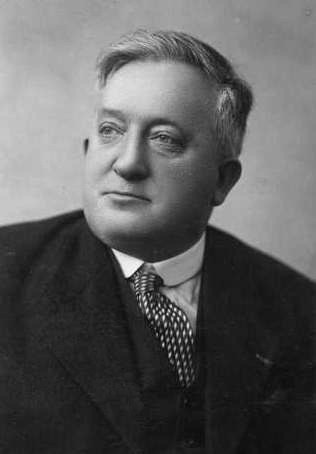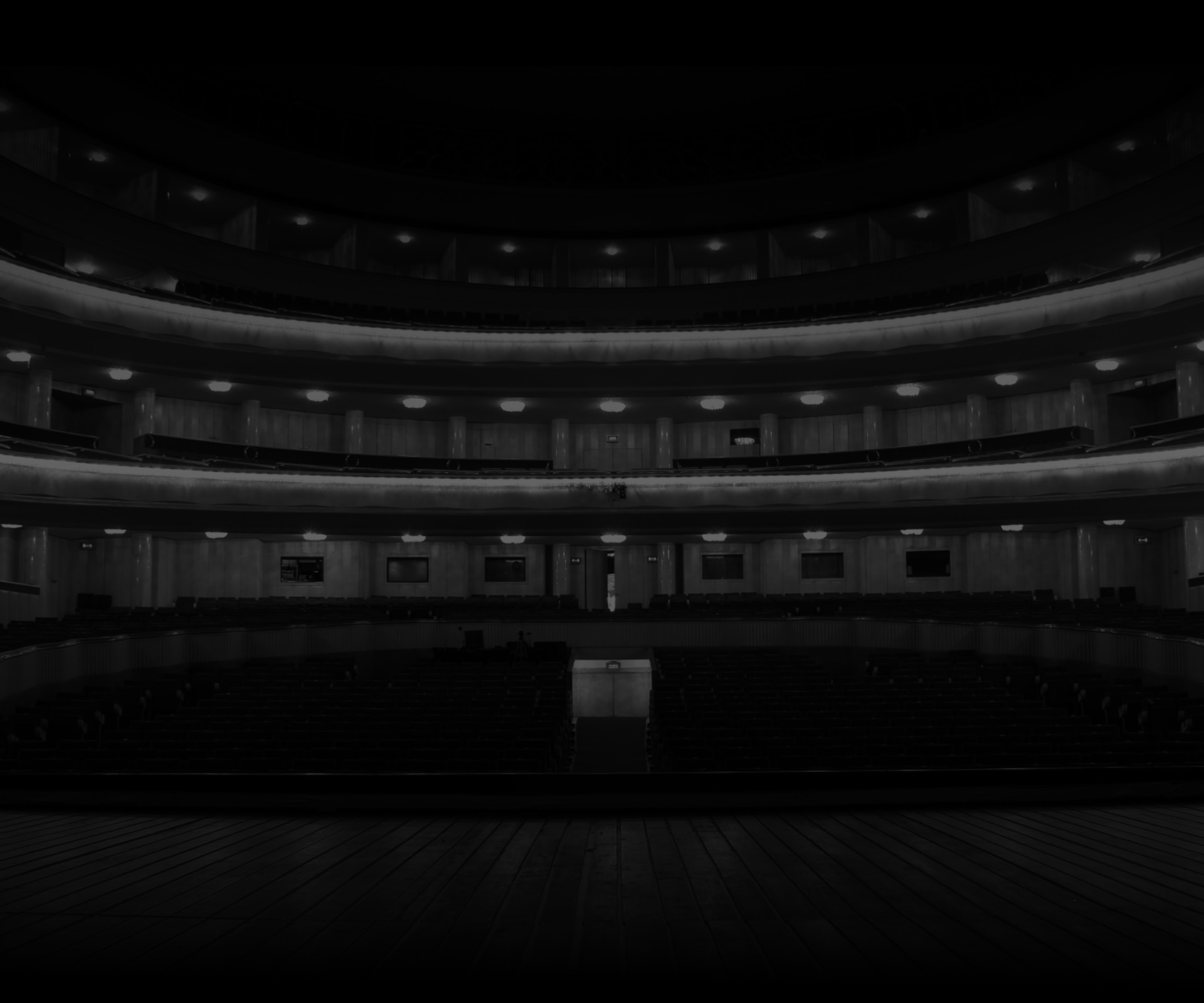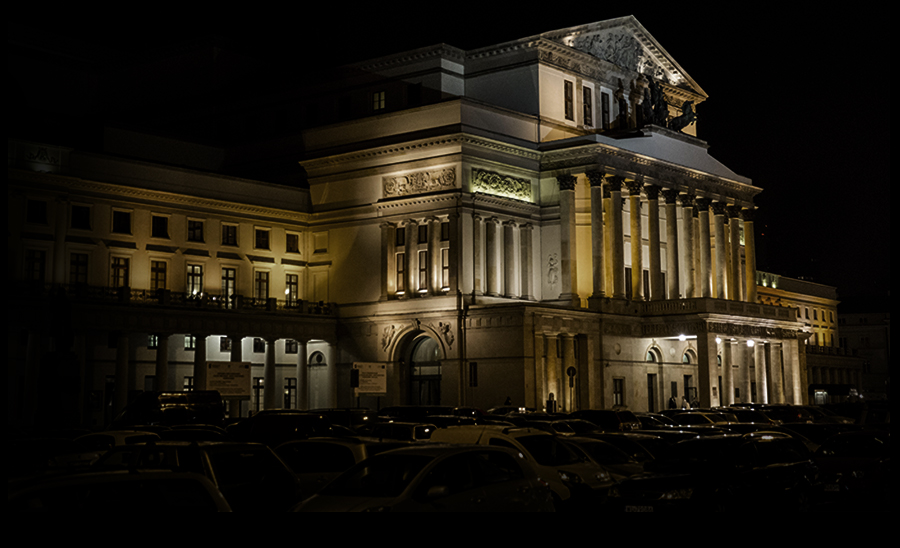
His father, Aleksander Różycki, was a well-known musician; subsequent editions of his piano training book were in use for a hundred years. Ludomir Różycki (1883–1953) completed the Warsaw Conservatory of Music, having studied composition under Zygmunt Noskowski (1904), then enrolled with the Academy of Arts, Berlin (1905–1907). There, in order to promote new Polish music, he founded, together with Karol Szymanowski, Apolinary Szeluto and Grzegorz Fitelberg, a collective known as Spółka Nakładowa Młodych Kompozytorów Polskich, or Publishing Group of Young Polish Composers. They were young indeed: all in their early twenties. Their 1906 concert in Berlin featured two of Różycki's symphonic poems. He wrote those willingly, drawing inspiration from paintings (Matejko’s Stańczyk, da Vinci’s Mona Lisa) and literature (Delavigne’s Warszawianka, Słowacki’s Anhelli). In Berlin he also composed songs set to words by Miciński, Heine, or Ibsen. He married singer Stefania née Mławska, who’d studied in Berlin too, and the pair gave concerts of Róźycki’s piano music. In the end, they settled in Lviv. Różycki himself conducted the world premiere of his first opera, Bolesław Śmiały, or Boleslaus the Bold (1909). In Lviv he also wrote incidental music for Krasiński’s Iridion (1912), which opened the first season at the Polski Theatre in Warsaw (1913). Warsaw’s Teatr Wielki staged Róźycki’s Meduza, or Medusa (1912), an opera based on Leonardo da Vinci’s life and starring excellent tenor, Ignacy Dygas in the role of Leonardo.
The time Różycki spent in Berlin (1913–1919), despite the war, brought about valuable chamber pieces: Piano Quintet in C minor and String Quartet in D minor. Their world premieres were performed by leading virtuosos of the time: violinist Carl Flesch and pianist Ignacy Friedman. Also in Berlin Różycki wrote his best opera: Eros and Psyche, inspired by a ’stage novel’ by Jerzy Żuławski. It raised some interest; its full score and orchestra parts were published in print. Its first staging, in German, took place in Breslau, now Wrocław (1917). Subsequently, the opera was shown on other German stages. After its Warsaw debut (1918), it was performed in the original Polish (Lviv 1920, Poznań 1926). Różycki moved to Warsaw. His ballet, Pan Twardowski, or Master Twardowski put on at the Teatr Wielki under Emil Młynarski (1921) had enthralling scenery designed by Wincenty Drabik and was named a 'national masterpiece’. Written later, Róźycki’s comic opera Casanova (1923) was staged under Artur Rodziński. Both titles were shown around the country and more than a dozen European venues. Róźycki became massively popular. Yet, at the same time he was losing his modernist edge and was using a simplified musical language. His new opera, Beatrix Cenci (1927), was of a more eclectic nature; its Warsaw premiere was put on by Fitelberg, the libretto, after Słowacki, was written by Różycki’s wife.
The composer reacted to civilisational changes taking place around him. He wrote music for the first Polish sound film, The Morality of Mrs Dulska (1930) and recorded it with an orchestra for Syrena Record. Syrena released the film’s leitmotif, Hanka, the blues Wiosenna noc (Spring night) sung by Wiktor Brégy and Stefania Różycka, and the choral Kołysanka (Lullaby). Different bands, ensembles, and popular singers also recorded (1926–1936) other hits written by Różycki: Krakowiak from Pan Twardowski, Walc Caton „To dawny mój znajomy” (The Canton waltz 'An old friend of mine') from Casanova, Pieśń Błędnego Rycerza (A song of a knight errant) from Eros and Psyche. Avant-garde by design, his opera Młyn diabelski, or The Devil’s Mill (1931) was supposed to reflect the pace of the times: the story involved a film, flying an aeroplane, a street in Paris, and a revue theatre resounding with the rhythms of the tango, charlestone, and slow-fox. Różycki concluded his series of extremely versatile operas, including a romantic, comic, tragic, and film opera as well as a music drama, with the operetta Lili chic śpiewać, or Lili Wants to Sing (1933). The critics ran it down, yet the lullaby Laleczki moje (My dollies) was very much liked by the general public. He also wrote the ballet Apollo i dziewczyna, or Apollo and the Girl (1937) for the Polish Representative Ballet. He was active in many fields. With his wife, he published a vocal training book (1926) based on methodical advice provided by recognised Italian teachers, including a set of singing exercises and songs. He founded an association of Polish composers and envisioned an international artistic federation.
The war treated him harshly. His Warsaw home burnt down, together with his unpublished manuscripts. Other manuscripts, buried in the garden, survived only partially. After 1945 he was offered living and working quarters in Katowice. He worked to reproduce the lost works, mostly operas. Apart from numerous accolades, he received a small villa in Zachełmie, near Jelena Góra. Doubtless, had his oeuvre survived, Różycki’s place in the history of Polish music would have been different.
Written by Małgorzata Komorowska






 ''
''